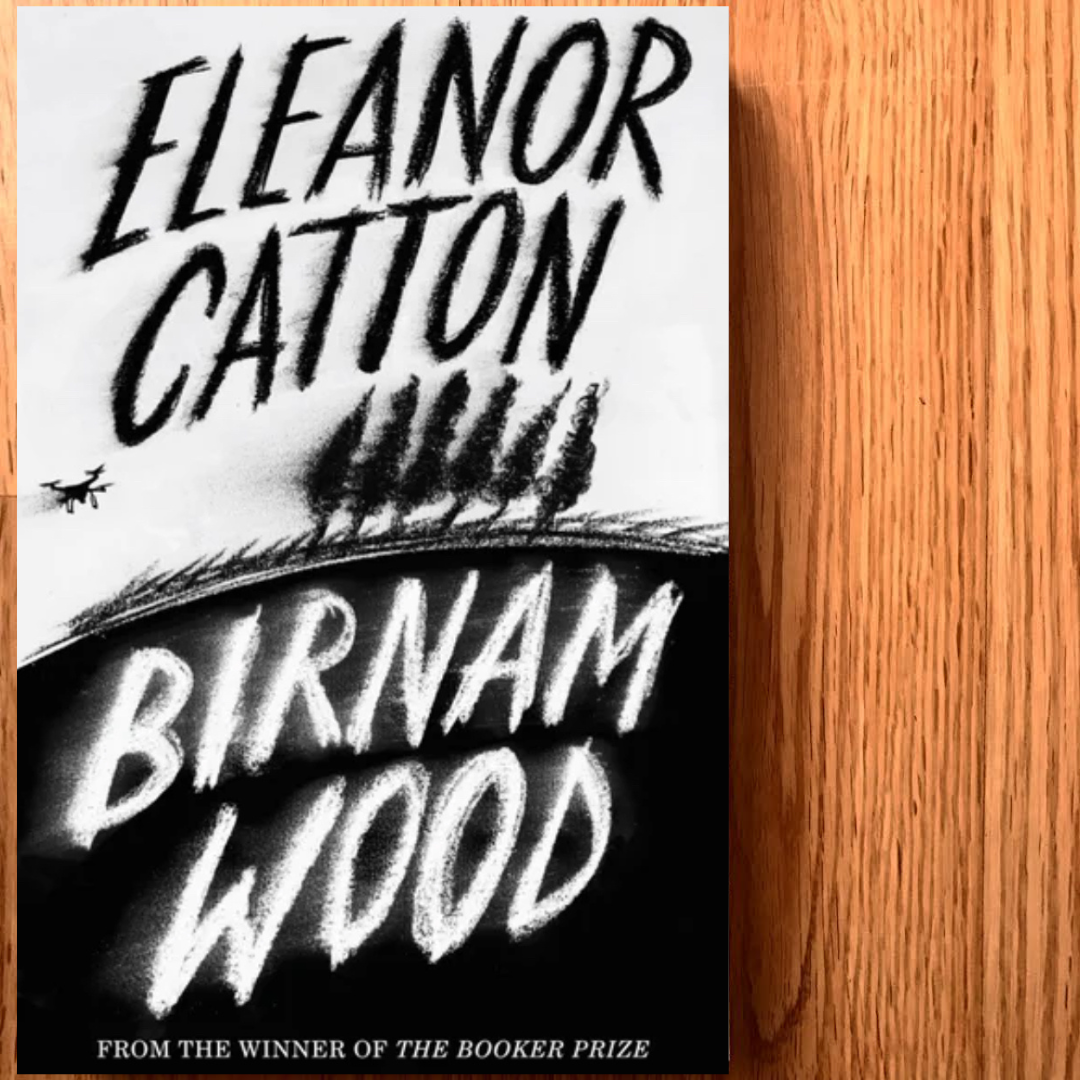By Carmen Lebar
Content warning: drug use, physical violence, death
Birnam Wood by Eleanor Catton is an environmental thriller that focuses on the dangers of late-stage capitalism.
Birnam Wood is a guerrilla non-profit organization that specializes in gardening, and making crops accessible to surrounding communities in New Zealand. In 2017, there’s a landslide in the Korowai Pass that gives the nonprofit’s leader, Mira Bunting, an idea to use that land to garden. When she goes to investigate the area, she meets billionaire Robert Lemoine who promises to give Birnam Wood money to see what can be done with it.
Former member, Tony Gallo, is not impressed with Mira’s decision, which leads him to do an individual investigation as to what’s really happening in the Korowai Pass, and what Robert Lemoine is doing there. Birnam Wood is an unputdownable read that brilliantly captures the dangers of capitalism and its damaging connection to the environment.
As Birnam Wood arrives at the Korowai Pass, they start their work on the Darvish estate, which Robert Lemoine has purchased to build his bunker. There they begin planting, but cracks in this deal begin to arise. Why does a billionaire, who owns a drone company, want to work with their nonprofit?
Catton critiques billionaires on how they tie themselves with charities and nonprofits to either distract from their bad decisions, or cast themselves in a better light. Sir Owen Darvish, a pest control owner, sells his property to Lemoine to create connections to Lemoine’s wealth, especially after having received knighthood only a couple months prior. Mira is similar to Darvish because she wants both: a reputable business, and spokesperson, for Birnam Wood so they can incorporate.
Catton illustrates the complexities of living in a capitalist structure, and how each character in the novel has to play along within its rules to achieve their individualistic goals. No one can escape capitalism in the novel, so they all work around it—even though it causes much frustration with others who oppose it.
Tony vehemently opposes the negative effects of capitalism, especially in the case of Mira’s agreement with Lemoine. He is worried about what this form of connection would mean for Birnam Wood, and how it goes against a lot of what the nonprofit stands for. The environment is one of the most important aspects to Birnam Wood, and Tony is unsure how a billionaire will care for the local environmental group. He soon discovers that there is more at stake at the Korowai Pass than just a landslide, and has documented proof that Lemoine is up to something.
Catton delves into the strain that is put on the environment throughout the novel. She writes about the contradictions of working with capitalists to help the environment when many of the people with money in this novel don’t care about it at all. The environment is impacted by everyone in the novel, whether they are planting new plants or digging the earth to build a bunker.
Birnam Wood is a thriller unlike any I have read before. It combines the uncertainty of the environment, the distrust of people in power, and the scarcity of natural resources. Catton also makes important critiques of white saviorism, surveillance, and government spending. Although there are clear villains, so to speak, in this novel, what I found most refreshing was how every character lives in a morally grey area. Everyone has their own motivations, everyone has something to gain, and no one is painted as an absolute hero. I would recommend Birnam Wood to anyone looking for a timely thriller that explores the connection of the environment and capitalism. Its ending was truly unexpected, and one that I haven’t stopped thinking about—even days after reading it.

